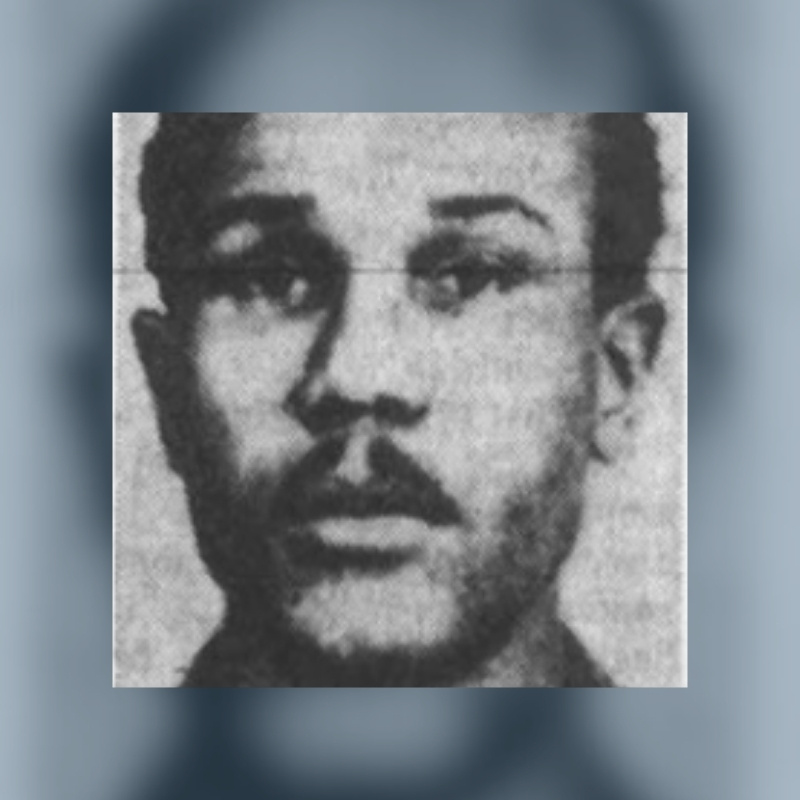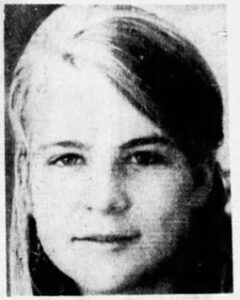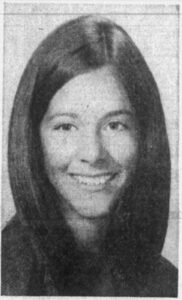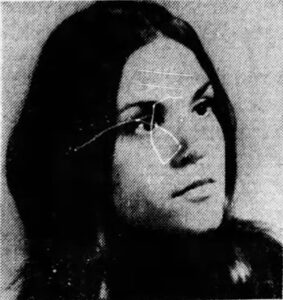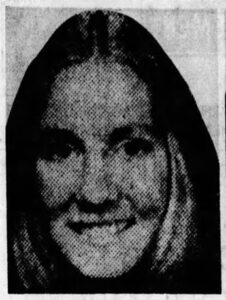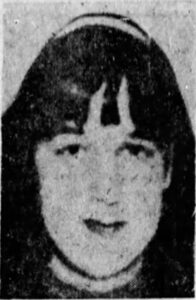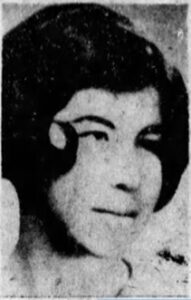On a chilly December night in 1972 just outside of Boston, Massachusetts, what might have been just a routine traffic stop took an unexpected turn when two police officers trailed a mysterious man in a dark Cadillac and their pursuit spiraled into a high-speed chase and a shoot out.
When officers finally caught up to the vehicle and apprehended the driver, the past four months of fear and torment through the greater Boston area would finally come to an end. These are the stories of Kathleen Randall, Deborah Rae Stevens, Ellen Reich, Sandra Ehramjian, Damaris “Synge” Gillispie and Ruth Hamilton.
Boston, Massachusetts is the biggest city in New England, a place where the past echoes through every cobblestone street, the future reflects off each towering skyscraper, and everything is blanketed with the salt air of Massachusetts Bay and the Atlantic Ocean. It’s a city where history and innovation converge to create a captivating urban tapestry.
But what sets Boston apart from other east coast cities is its reputation as a thriving hub of education. It’s a haven for knowledge seekers, a vibrant epicenter for learners of all ages with renowned institutions like Boston University, Boston College, Northeastern and Tufts, to name a few. These institutions infuse the city with a youthful energy and a genuine enthusiasm for learning that reverberates through the very streets. And in 1972, Boston was the historic, educational city that beckoned 19-year old Deborah Rae Stevens.
Debbie, as she was called by her family, was a sophomore physical therapy student at Boston University and she also took classes at Northwestern University, which occupied the same general area as BU. On a typical day, Debbie would take the train or bus to get to class from home in nearby Lynn, Massachusetts, but on the night of September 14th 1972, she decided to borrow her sister’s car.
Debbie chatted with her friends around 9:30 p.m on the campus of Northwestern University but it seemed like she didn’t actually go to class as intended that night…and this is where things get a little foggy – her movements couldn’t be traced after she was seen chatting with her friends.
When Debbie didn’t make it home by 10 p.m. as expected, her family tried to track her down themselves. They didn’t immediately involve police in their search because they didn’t have any cause for alarm…not yet anyway. Until at 6 a.m. on September 15th, when police received a call from a man who said he’d just found a body in the lilac bushes on his street…and this body was identified later that morning as Deborah Rae Stevens who was laying only just 75 yards away from her own home. Police believed that she had been killed elsewhere and her body was dumped there, but it’s not clear how they made this determination. The medical examiner’s initial examination was that Debbie had been strangled and possibly sexually assaulted, and likely died between 2 and 3 a.m.
Not long after her body was discovered, Police located the car that Debbie had driven to class the night before blocking someone’s driveway two blocks away from her house. Anthony Pearson wrote for the Boston Globe that the dashboard and front seat of the car had at least two bullet holes and traces of lead were found inside the vehicle, but what’s kind of strange is that there was no blood inside the car and Debbie did not have any gunshot wounds.
As investigators were speaking with friends and family members who could provide insight into who Debbie was and her habits, a theory emerged. Maybe Debbie picked up a hitchhiker.
Hitchhiking was very common in the 50s, 60s, and 70s, specifically among the Baby Boomer generation who was coming of age in that era. It was so prevalent that the FBI ran campaigns against the practice, warning drivers that the innocent looking stranger on the side of the highway could be a quote-unquote sex maniac or a vicious murderer. According to a New York Times op-ed by Ginger Strand, the author of, “Killer on the Road: Violence and the American Interstate”, one particular anti-hitchhiking campaign by Rutgers University included police officers handing out cards to female hitchhikers that read, “If I were a rapist, you’d be in trouble.” Just a side note, the language of these campaigns oozes with victim shaming.
According to reporting by Jim Steadman for The Daily Item, Debbie’s mother told investigators that Debbie was a trusting person, and she always wanted to help. If someone possibly asked for a ride as Debbie drove to or from campus that night, it wouldn’t have been surprising for Debbie to swing open the car door and welcome a seemingly harmless stranger inside.
Only 12 hours passed between Debbie not returning home, the discovery of her body, and the launch of the investigation into her death. But at the time, investigators had no idea that another Boston University student had also disappeared under alarming circumstances, and they’d soon have a second homicide to investigate.
Episode Source Material
- Mystery death probed, The Daily Item, 15 Sep 1972
- BU coed found dead near Lynn home by Anthony Pearson, Boston Globe, 16 Sep 1972
- Debbie’s family mourns her as ‘a joy to all’ by Jim Steadman, Daily Item, 22 Sept 1972, page 2
- Strangling of BU student in Lynn continues to baffle investigators by Richard O’Donnell, Boston Globe, 17 Sep 1972
- Debbie’s family mourns her as ‘a joy to all’ by Jim Steadman, Daily Item, 22 Sept 1972
- Coed missing since Sept. 13, Boston Globe, 24 Sep 1972
- Body of girl identified by Donald Dillaby, Nashua Telegraph, 03 Oct 1972, page 2
- BU student’s body found in Nashua, Boston Globe, 03 Oct 1972
- BU coed’s slaying linked to Lynn student’s murder, The Daily Item, 03 Oct 1972, page 2
- Few clues for police in BU coed slaying, Boston Globe, 04 Oct 1972
- Police probe ‘coincidence’ in murders, The Daily Item, 04 Oct 1972
- Police probe girl’s death; believe it was homicide, Nashua Telegraph, 04 Oct 1972
- Roll call by Bill Kettinger, The Daily Item, 19 Oct 1972
- Police ask students for clues in slaying, Boston Globe, 24 Oct 1972
- N.J. girl, 19, found dead in Roxbury by Stephen Wermiel, Boston Globe, 14 Nov 1972
- Hitchhiking girl student murdered by Alan Sheehan, Boston Globe, 14 Nov 1972
- Emerson College sophomore’s body found nailed in closet in Roxbury, AP/Lowell Sun, 14 Nov 1972
- 4 Unsolved Murders: Link possible in coed deaths, Daily Item, 15 Nov 1972, page 2
- Hitchhiking seen common thread in killings of four young women, North Adams Transcript, 15 Nov 1972
- Boston police baffled by latest coed slaying, Berkshire Eagle, 15 Nov 1972
- Police seeking links in 3 student murders by Seymour Linscott, Boston Globe, 15 Nov 1972
- Police push for leads in coed’s death by Madeleine Blais, Boston Globe, 15 Nov 1972
- Mother, brothers plead for word about coed missing from BU by John Robinson, Boston Globe, 03 Dec
- Seeking herself, finding death by March Schogol, Newsday, 04 Dec 1972
- Path of deaths, disappearance strewn with similarities by Joseph Rosenbloom, Boston Globe, 04 Dec 1972
- Four sought in disappearance of Cambridge girl by Seymour Linscott, Boston Globe, 04 Dec 1972
- Police looking for ‘psychotic’ strangler of three women, Athol Daily News, 06 Dec 1972, page 2
- Nashua police detective sees similarities in coed killings, Nashua Telegraph, 06 Dec 1972
- Damaris Gillispie Missing Poster and article, Boston Globe, 06 Dec 1972
- Report girl’s family gets ransom call by George Croft and Seymour Linscott, Boston Globe, 6 Dec 1972
- Boston police investigating ransom demand for missing woman, AP/Bangor Daily News, 07 Dec 1972
- Maine girl, 15, held in ransom request by Stephen Wermiel, Boston Globe, 12 Dec 1972
- Probers to discuss if 5 slayings are related by Walter V. Robinson, Boston Globe, 13 Dec 1972
- Gillispie family appeals to ‘kidnapper’ to call again, Boston Herald Traveler and Record American, 19 Dec 1972
- Two women found dead in Cambridge, Gloucester, Boston Globe, 26 Dec 1972
- Dead girl’s friends face quiz, Boston Globe, 27 Dec 1972
- Suspect in hitch-hike murders being questioned by police by George Croft and Seymour Linscott, Boston Globe, 08 Jan 1973, page 2
- Police have suspect in six slayings, UPI/Evening Express, 09 Jan 1973
- Blood-soaked auto hauled to police lab from salvage company, AP/Sun-Journal, 26 Jan 1973
- BU coed missing 67 days found slain; 7th victim by Ed Corsetti and Earl Marchand, Boston Herald American, 05 Feb 1973
- Body of coed is uncovered in Billerica, Nashua Telegraph, 05 Feb 1973
- Dorchester man indicted in death of Synge Gillispie by Stephen Wermiel, Boston Globe, 14 Feb 1973, page 2
- Cambridge man indicted in coed slaying by Edward O’Donoghue, Lowell Sun, 14 Feb 1973
- Police ready to seek indictment in Cambridge death of teacher by George Croft & Seymour Linscott, Boston Globe, 14 Feb 1973
- Jackson to be tried on Gillispie case alone, UPI/Transcript-Telegram, 15 Feb 1973
- Inmate indicted in murder of second woman, Boston Globe, 12 Mar 1973
- Mass grand jury indicts man accused in coed murder by Craig Ammerman, AP/Bangor Daily News, 14 Feb 1973
- 7 shy women – they trusted alike, died alike by Lucinda Smith and Stephen Wermiel, Boston Globe, 18 Mar 1973, page 2, page 3
- Youth culture holds key to murder of 7 by Stephen Wermiel, Boston Globe, 19 Mar 1973
- No new indictments pending, AP/Biddeford-Saco Journal, 21 Mar 1973
- Indictment sought in slaying of woman, Nashua Telegraph, 27 Apr 1973
- Jackson guilty, gets life by Dexter Brine, Boston Globe, 23 Dec 1975
- Witness says victim got in Jackson’s car by James H. Hammond, Boston Globe, 13 Apr 1977
- Jackson tries to leap out window by James H. Hammond, Boston Globe, 16 Apr 1977
- Jackson jury told of picture by James H. Hammond, Boston Globe, 17 Apr 1977
- Acquittal of Jackson surprises his defense by James M. Hammond, Boston Globe, 22 Apr 1977
- Record haunts acquittal jurors by Kay Longcope, Boston Globe, 20 May 1977
- Evidence missing in two Nashua cold cases By Damien Fisher, The Telegraph, 20 Aug 2017
- The forgotten art of hitchhiking — and why it disappeared by Joseph Stromberg, Vox, 8 Jun 2015
- Opinion | Hitchhiking’s Time Has Come Again by Ginger Strand, New York Times, 11 Nov 2012
- FBI Law Enforcement Bulletin, J. Edgar Hoover, July 1957
- Alan Randall Obituary, Dignity Memorial
- Gloria Randall Obituary, Cape Cod Times
